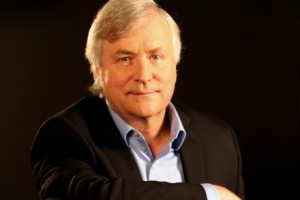“SALON.COM”—a presentation by Alexandra Downing Watkins and Joy Richu
ABOUT
“Salon.com” is one of the pioneers of online media magazine. It was founded by journalist David Talbot in the year 1995 with the aim to broaden the boundaries of journalism. The magazine updated every weekday and is mainly focused on U.S. politics and personal affairs, but as well included reviews and articles about lifestyle and entertainments such as books, films and music etc. Not only being the pioneer of online publication, Salon.com had also established an online radio in 1999.
Salon.com has adopted the concept of “readers’ online interactions” from another virtual community The WELL (http://www.well.com/aboutwell.html) long before the popularization of blogging and social networks such as Twitter and Facebook.
THE HISTORY
A timeline would be better to demonstrate the progress of Salon.com between 1995 and 2012.
1995 —Salon.com and was launched by David Talbot
1999 —Salon Radio was launched
—purchased online community The WELL
— Salon.com officially went public and raised $2,500,000 revenue mainly through ads
2000— as an effect of the stock market crash, internet “.com” recession occur
2001—Salon Premium online content subscription ($30/month) OR free access with advertisements à lost a lot of membership
2008— “Open Salon”, a social and blogging network, was launched with the capacity for readers to blog and post comments on it à increased in viewership
http://open.salon.com/cover.php
2011— the plan of selling to Newser.com was failed due to disagreement over price
— Online discussion board and interactive forum closed down with no official reason
— David Talbot returned as CEO and the site re-launched
Impacts on nowadays media (and what do I think =)
Salon.com, as one of the first online magazine, had basically started the revolution and transformation of a new form of media—an online, writer-reader interactive, free-access media. This new format has completely changed the habit and role of both readers and writers. It not only enables readers to have 24-hour access in any part of the world but also allowed viewers to take part in the process of news media through websites like Open Salon. The launching of Open Salon and other online forums/discussion boards also help to develop a new idea of “citizen journalism”, in which bloggers are able to post articles, if not first-handed news and videos, via internet and share them worldwide to other viewers. Nevertheless, there are as well downsides of these new platforms; as Joy and Alexandra had mentioned today, the openness to different bloggers has caused the lost of creditability of the online magazine. Not like the old media which are treated to be objective, or even “divine” (in terms of its disinterestedness to day-to-day events), websites like Open Salon are tend to be more personal and biased due to the lack of control towards news posts; these, thus, believed to be less trustworthy then traditional newspaper. The viewers nowadays have subtly changed their attitudes to be more and more skeptical on these news sources. Therefore, Salon.com did helped in changing the new style of media and journalism and I truly feel that it opened up a lot of opportunities for readers to be more active on participating in everyday news—from community wide to worldwide. If there’s not a website like Salon.com back in the 90s, the new media as well as social networking might not be that sophisticated as now they are.
A little sidetrack (if you are interested…)
David Talbot had also written a book called”Brothers: The Hidden History of the Kennedy Years” to reveal some new information about the assassination of President JFK!
http://www.amazon.ca/Brothers-Hidden-History-Kennedy-Years/dp/0743269195
